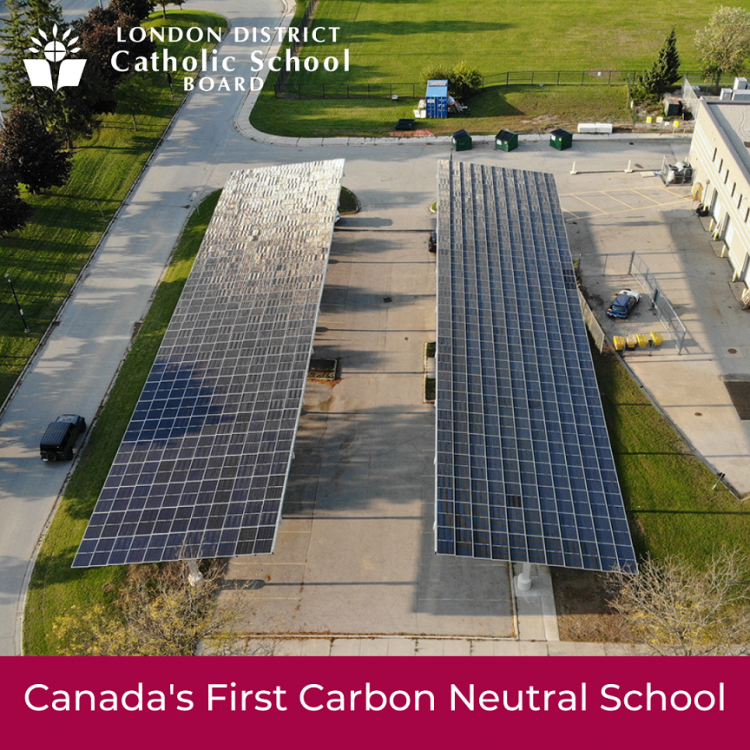Completed in 2021 the $9.7 million project included the installation of 2,700 covered carport solar panels (providing 825 kilowatts (kW) DC of power), piping for a geothermal heating and cooling system, a 2.2-megawatt hour (MWh) electrical energy storage system and four electric vehicle charging stations (coming soon).
Implemented improvements will greatly reduce greenhouse gas emissions, previously required to heat, cool and provide electricity to the school, to near zero and remove approximately 277 tons of carbon on a yearly basis. Not only has the school become completely energy self-sufficient, but baseline electricity costs have been reduced 68%.

The energy microgrid includes a Tesla energy storage system and an integrated building control system that utilizes machine learning and artificial intelligence to reduce energy use to an absolute minimum while maintaining occupancy safety and comfort. The microgrid could allow the school's energy systems to provide energy and other energy ancillary services to both the London Hydro and provincial electricity system while providing the school with resilient energy availability during both short- and long-term electrical outages,
The work done at JPII positions the school as a national leader in carbon reductions and a model for not only other educational facilities throughout Canada, but all facilities across all sectors, proving that construction of a carbon-free facility is a technically viable option.












